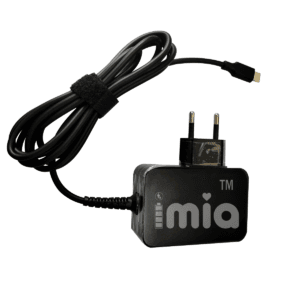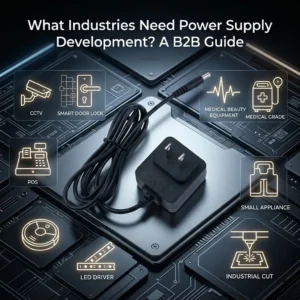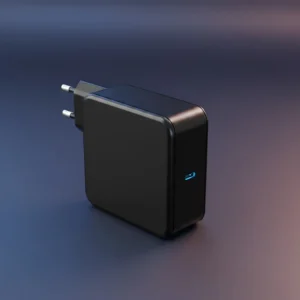Saat Anda menyalakan laptop, mengisi daya ponsel cerdas, atau menghubungkan router, kemungkinan besar Anda menggunakan adaptor AC—komponen penting namun sering diabaikan dalam elektronik modern. Namun, apa itu adaptor AC, dan mengapa adaptor ini begitu penting untuk memberi daya pada perangkat dengan aman dan efisien? Panduan ini menjelaskan semua yang perlu Anda ketahui tentang adaptor AC, fungsinya, fitur keselamatannya, dan cara memilih adaptor yang tepat untuk perangkat Anda.
Apa itu Adaptor AC?
Adaptor AC, juga disebut adaptor AC/DC, adaptor daya, pengisi daya dinding, power brick, atau bahkan adaptor dinding, adalah catu daya eksternal yang mengubah arus bolak-balik (AC) dari stopkontak menjadi arus searah (DC) yang dapat digunakan oleh perangkat elektronik. Sebagian besar pengisi daya perangkat elektronik—baik untuk laptop, ponsel, maupun konsol gim—mengandalkan adaptor AC untuk memberikan tegangan dan arus yang tepat.
Bagaimana Cara Kerja Adaptor AC?
Adaptor AC bekerja dengan mengubah daya AC bertegangan tinggi dari stopkontak dinding Anda menjadi keluaran DC bertegangan rendah yang sesuai untuk perangkat Anda. Tergantung pada desainnya, konversi ini dapat dilakukan dengan menggunakan:
-
Catu daya linier – desain lama, lebih besar dan lebih berat, menggunakan transformator dan regulator.
-
Catu daya mode sakelar (SMPS) – desain modern, lebih kecil, lebih efisien, digunakan di sebagian besar adaptor saat ini.
Proses ini memastikan bahwa perangkat elektronik yang sensitif menerima daya DC yang stabil tanpa rusak oleh fluktuasi tegangan AC.
Jenis Adaptor AC
-
Pengisi daya laptop – Adaptor khusus dengan watt lebih tinggi untuk memberi daya dan mengisi daya laptop.
-
Adaptor USB – Adaptor ringkas yang menyediakan port USB untuk perangkat seluler.
-
Pengisi daya Galium Nitrida (pengisi daya GaN) – Desain adaptor AC efisien generasi berikutnya, lebih kecil dan lebih cepat daripada pengisi daya tradisional.
-
Adaptor AC universal dengan konektor yang dapat dipertukarkan – Berguna bagi pelancong atau teknisi yang membutuhkan kompatibilitas dengan beberapa perangkat.
-
Adaptor AC untuk perangkat game – Dirancang untuk menangani beban yang lebih tinggi untuk konsol dan laptop gaming.
Fitur Utama dan Perlindungan Keselamatan
Adaptor modern menyertakan beberapa fitur keselamatan adaptor AC, seperti:
-
Perlindungan tegangan lebih – mencegah kerusakan akibat tegangan berlebih.
-
Perlindungan hubung singkat – mematikan adaptor jika terjadi kesalahan internal.
-
Mekanisme pembuangan panas dan panas berlebih – jaga adaptor tetap dingin saat digunakan dalam jangka waktu lama.
Fitur-fitur ini membantu memperpanjang umur adaptor dan keamanan perangkat.
Persyaratan Tegangan dan Arus Adaptor AC
Memilih adaptor yang tepat memerlukan pencocokan:
-
Voltase – Harus sama persis dengan kebutuhan masukan perangkat.
-
Arus listrik – Adaptor harus menyediakan arus yang sama atau lebih besar dari yang dibutuhkan perangkat.
Tegangan yang tidak tepat dapat merusak perangkat elektronik, sedangkan arus listrik yang tidak mencukupi dapat mengakibatkan kinerja yang buruk atau panas berlebih.
Jenis dan Konektor Steker Adaptor AC
Adaptor AC tersedia dengan berbagai jenis colokan dan konektor, termasuk colokan barel, USB-C, dan konektor laptop khusus. Dengan adaptor AC USB Power Delivery (USB-PD), banyak perangkat modern kini mendukung pengisian daya cepat melalui USB-C.
Pertanyaan Umum Tentang Adaptor AC
Apa perbedaan antara adaptor AC dan DC?
Sebuah Adaptor AC mengubah AC menjadi DC, sementara adaptor DC biasanya menurunkan atau mengatur tegangan DC dari sumber DC lain (seperti aki mobil).
Adaptor AC vs power bank – apa bedanya?
Sebuah Adaptor AC menyediakan daya dengan cara dicolokkan ke dinding, sementara power bank menyimpan energi dan menyalurkan daya DC saat bepergian.
Bagaimana cara mengganti kabel adaptor AC?
Jika kabel rusak, gunakan pengganti dari merek/model yang sama, atau adaptor AC pengganti untuk laptop yang sesuai dengan tegangan, arus listrik, dan jenis konektor.
Efisiensi dan Standar Industri
Adaptor masa kini mengikuti standar industri adaptor AC/DC untuk efisiensi energi dan kepatuhan keselamatan. Banyak negara mewajibkan adaptor AC hemat energi yang mengurangi pemborosan listrik. Pengisi daya GaN semakin meningkatkan kinerja dengan memungkinkan desain yang lebih kecil, lebih dingin, dan lebih cepat.
Pemikiran Akhir: Memilih Adaptor AC yang Tepat
Saat memilih adaptor, selalu periksa:
-
Persyaratan tegangan dan arus listrik perangkat Anda.
-
Jenis konektor dan kompatibilitas steker.
-
Fitur keselamatan seperti perlindungan tegangan lebih dan hubungan arus pendek.
-
Peringkat efisiensi energi untuk mengurangi pemborosan daya.
Baik itu pengisi daya laptop, adaptor USB untuk perangkat seluler, atau adaptor AC universal, membuat pilihan yang tepat menjamin kinerja yang andal dan umur perangkat yang panjang.





